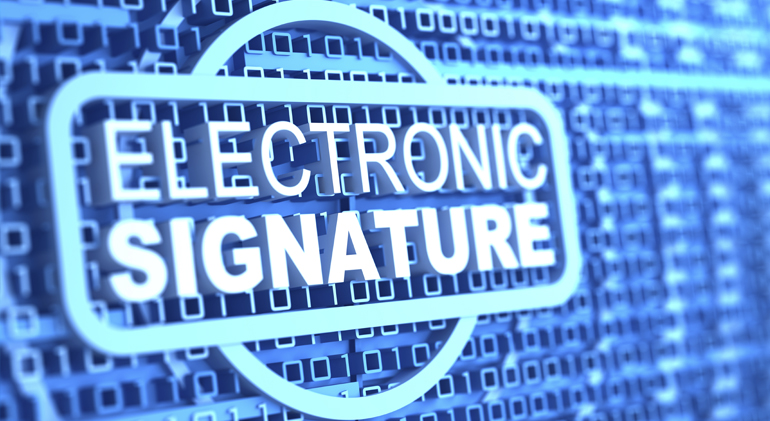

The Act represents another step forward with planned and ongoing process of digitization and modernization of public administration in general, providing citizens and business entities with a simpler approach to services of public authorities, i.e. a faster, cheaper and more efficient business performance. A change of current practice, with high number of provisions requiring use of documents in paper form, unquestionably has a great importance for competitiveness of Serbia in a global marketplace.
In accordance with Regulation no. 910/2014 from July 23, 2014 (on electronic identification and trust services for electronic transactions within internal market), the Act pays special attention, inter alia, to electronic identification, electronic seal, electronic signature, electronic document, as well as trust services and electronic storage of documents. In this way, not only that Serbia harmonizes its legal scope with relevant European rules when it comes to electronic business, thus fulfilling its obligations regarding accession process, but also significantly raises standards similar to those in technologically developed countries.
Namely, the Act introduces the electronic seal, thus increasing possibilities for legal entities to take advantage of conducting electronic business. The Act further differentiates among electronic, qualified electronic and advanced electronic seal—depending on a manner that seal is made, as well as on a degree of protection against risks of an unauthorized use or any other type of abuse. Advanced electronic seal represents “transient solution” between electronic and qualified electronic seal, intended for cases in which a higher level of security is needed, but due to formal or practical reasons it is not appropriate to use qualified electronic seal. Anyhow, the Act stipulates that validity and legal force of electronic seal cannot be challenged only due to its electronic form, or because it does not meet conditions inherent to the qualified electronic seal. Qualified electronic seal implies the assumption of identity preservation, and accuracy of origin of data to which it is bound. In other words, an electronic seal of legal entity will be a substitute for seal and signature of the person authorized to represent that legal entity.
In analogy to the aforementioned, the Act also distinguishes amongst electronic, advanced electronic and qualified electronic signature. In the same manner as with the electronic seal, the Act stipulates that validity and probative force of electronic signature cannot be challenged only because it is in electronic form, or because it does not meet conditions for the qualified electronic signature. Qualified electronic signature has the same legal effect as personal signature. Bearing in mind that very small number of citizens used the electronic signature service so far—mostly due to the complexity of procedure for its obtaining (especially for natural persons acting in front of a legal entity or state body)—one of the main goals of the new Act is to significantly increase this number by simplifying the subject procedure.
However, the Act explicitly provides that using of electronic seal or signature is not possible in agreements and other legal affairs where a special regulation provides for the form of certification of a signature, publicly certified document or notary public record.
In addition, pursuant to provisions concerning electronic seal and signature, the Act stipulates that neither electronic document can be denied its validity, probative force, or the written form only because it is made in electronic form.
Of a particular importance is regulating the electronic delivery, as the trust service, which can also be “plain” or qualified. Namely, the subject service will represent a kind of alternative to the recommended shipment service, since it ensures, with a high level of reliability, the identification of both sender and recipient, and is also followed by issuance of a certificate on electronic delivery. The Act explicitly states that data sent or received through the electronic delivery service cannot be challenged for its legal force and admissibility as evidence on legal affairs only due to the electronic form, or because it does not meet requirements for qualified electronic delivery service. Also, the Act provides that data from an electronic message—sent or received through the qualified electronic delivery service—is subject to the legal presumption of data integrity, when it comes to sending by a designated sender, its receipt by a designated recipient, and reliability of the date and time of sending and receiving.
Finally, the Act provides that by-laws issued on the basis of Electronic Signature Act and Electronic Document Act will apply even after the expiration of the subject acts, until the adoption of appropriate regulations pursuant to the new Act (unless they are contrary to its provisions). In addition, the certification bodies, competent for issuing qualified electronic certificates and currently registered based on the Electronic Signature Act, will continue to operate, but with the obligation to harmonize their business with the provisions of the new Act within next 12 months.
From the aforementioned, it can be concluded that it will certainly take some time for the legal solutions envisaged by the new Act to become effective in practice. However, this certainly does not diminish their significance for creating more accessible and efficient business “climate” in Serbia.